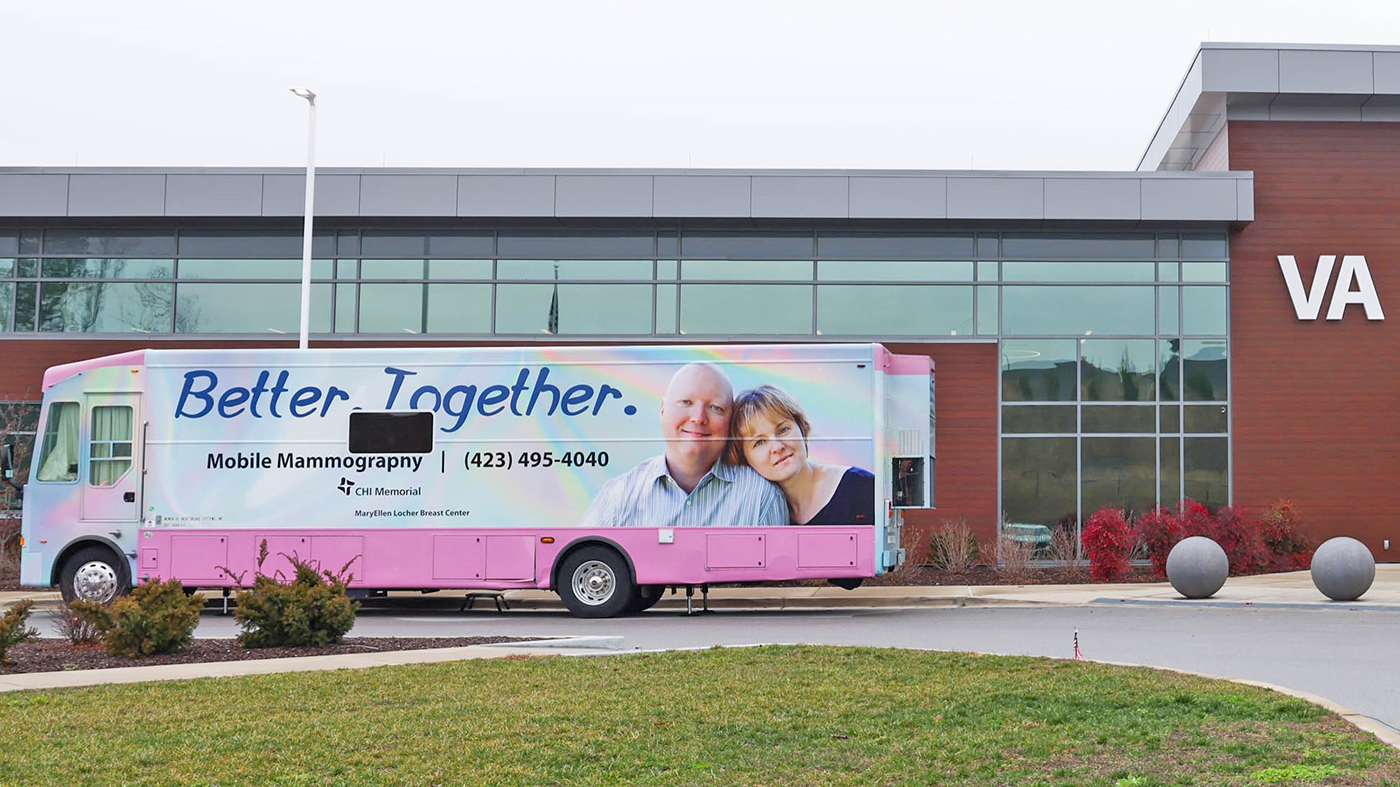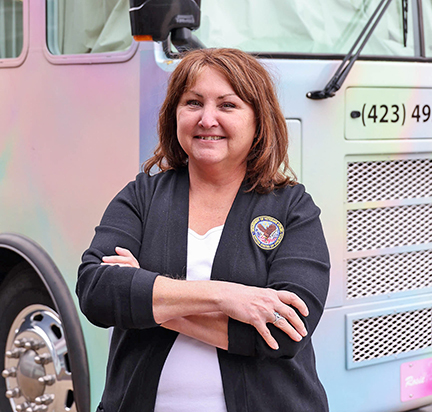The arrival of a mobile mammography bus marked a significant stride toward extending crucial screening services to Tennessee Veterans.
In an effort to enhance health care accessibility for Veterans, Tennessee Valley VA’s Chattanooga outpatient clinic recently collaborated with CHI Memorial MaryEllen Locher Breast Center to introduce a groundbreaking initiative.
“For the women’s health program, we are very excited to expand services in the form of a mobile mammogram bus to women Veterans who might not have been able to come in for a mammogram,” said Lynn Daugherty, nurse and women’s health program manager.
The mobile clinic catered to 20 Veterans on its inaugural day, signaling a promising start aimed at providing vital health care solutions to those who have served their nation.
Despite the Chattanooga area not containing a women Veteran population large enough to justify full-time mammogram services at the clinic, Daugherty and other physicians recognized the necessity of extending these crucial services to Veterans.
They forged a partnership with the Locher Breast Center in Chattanooga for their mobile mammogram bus to deliver essential health care services to Veterans.
Partnership is about detecting breast cancer early and Veterans being proactive
As part of the VA MISSION Act when VA cannot provide services, qualifying Veterans can receive their care in the community with providers paid for by VA. Veterans who qualify for community care through VA and receive a referral for mammography services are now eligible for an appointment at the mobile mammography bus.
“Now, Veterans can come on-site to a place that they’re already familiar with to receive their care,” Daugherty said, emphasizing the significance of reaching women Veterans, the fastest-growing demographic in the area. “Women’s health care is very different than men’s health care and requires different elements to that health care. We need to be able to offer that.”
The partnership between the Chattanooga outpatient clinic and CHI Memorial is about detecting breast cancer early but also about empowering all Veterans to take proactive steps toward their health and well-being.
“A gentleman approached the table and asked if men can receive mammogram services. He’s right. There are occasions when men do need screenings too,” Daugherty added.
This underscores the commitment to providing comprehensive health care services to all Veterans regardless of gender and reinforces the accessibility and inclusivity of the bus collaboration. “It’s exciting to be able to reach populations who are so far away from our central clinics because we know Veterans receive better care at VA.”
Topics in this story
More Stories
Bob Jesse Award celebrates the achievements of a VA employee and a team or department that exemplifies innovative practices within VA.
The Medical Foster Home program offers Veterans an alternative to nursing homes.
Watch the Under Secretary for Health and a panel of experts discuss VA Health Connect tele-emergency care.







